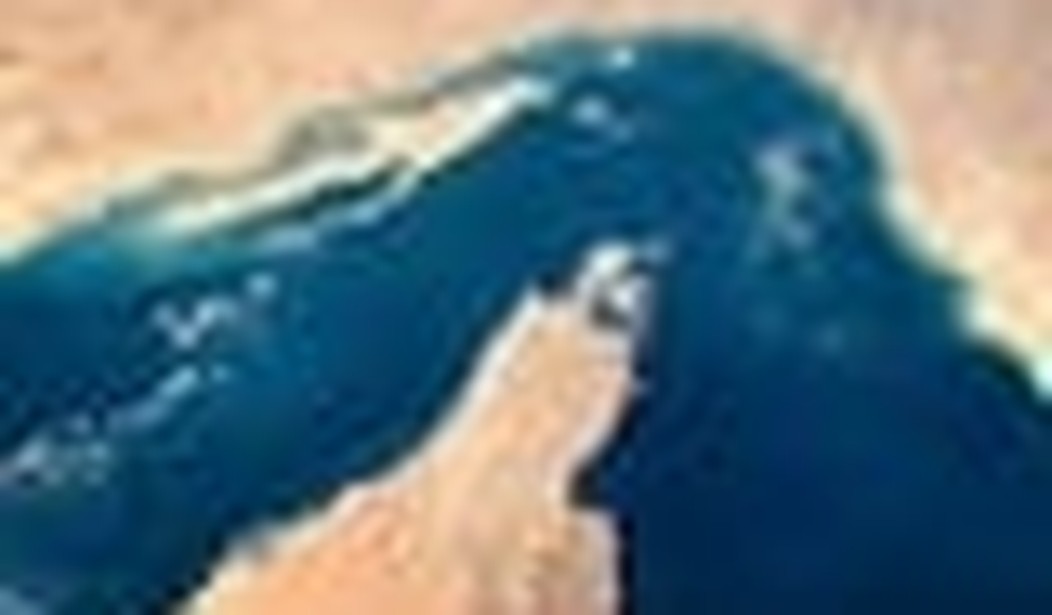The war of words between Iran and the United States escalated dangerously Sunday over the Islamic regime’s determination to develop nuclear weapons.
The Iranian leadership officially ordered its military commanders to close the Strait of Hormuz should Western sanctions be implemented on Iranian oil. Iran also announced it would be conducting ground war games, which would complement their recent naval war games intended to show they have the capacity to shut down the Strait.
About 35 percent of the world’s seaborne oil supply moves through the Strait of Hormuz — closing the strait would damage economies worldwide and cause gasoline prices to soar.
The United States responded that it will not allow Iran to acquire nuclear weapons — Defense Secretary Leon Panetta stated that such a development was a “red line” for the United States. General Martin Dempsey, chairman of the Joint Chiefs of Staff, warned that the United States has the ability to reopen the strait should Iran close it:
We made very clear that the United States will not tolerate the blocking of the Straits of Hormuz. … That’s another red line for us and that we will respond to them.
Britain has chosen to send its most sophisticated warship, the HMS Daring, to the Persian Gulf. The destroyer is fitted with new technology that gives it the ability to shoot down any missile in the Iranian armory.
Hadi Mohammadi, political deputy of Iran’s Revolutionary Guards, made the announcement regarding the escalation. He told Iranian newspaper Khorasan that the Guards have received orders from the highest authority in the Islamic regime to close the Strait of Hormuz:
Iran cannot remain indifferent to the actions by the West and their threats in implementing sanctions on Iran’s oil. … The Strait of Hormuz is within the strategic space of the Islamic Republic, and the leadership is determined to not allow a drop of oil to pass through if our oil exports are affected.
In reference to the recent naval war games held by the Iranian navy in the strait and the Persian Gulf, and the upcoming war games to be held in the same waterways by the Revolutionary Guards, Mohammadi emphasized:
[Iran has] shown and will show the enemy that without a doubt, our forces are capable of closing this strategic waterway to the world.
Mohammadi added that this new doctrine is based on the orders of the supreme leader, Ayatollah Ali Khamenei, to Iran’s armed forces. He continued:
We will respond to threats with threats but also that we will not always wait for the threats by the enemy to respond.
He also claimed that more foreign spy drones have been captured by the Iranian armed forces, but he refused to give details. He claimed details would be provided by the appropriate officials at the military’s General Headquarters.
Also on Sunday, Brigadier General Ahmad-Reza Pourdastan announced that the Iranian army will soon stage a major drill to display its might and capabilities. He added that the latest achievements of the army will also be unveiled.
Ayatollah Khamenei, who months ago ordered the Revolutionary Guards to begin preparations to arm their missiles with nuclear warheads, has recently ordered the Guards and the Iranian army to prepare for war. Khamenei has asked that the nuclear enrichment process be expedited.
Kayhan newspaper, the mouthpiece of the supreme leader, published an editorial Sunday declaring that the enrichment process at the underground facility of Fordow near the city of Qom will begin shortly, and that the centrifuges have been assembled and tests completed. Kayhan claimed victory in announcing that Iran is now enriching uranium at two sites, Natanz and Fordow, and claimed that this is Iran’s response to its enemy, the West.
Western intelligence learned about the secret Fordow enrichment facility, which is deep underground, in September 2009. Fordow is under Guards’ supervision and contains more advanced centrifuges. The officials of the Islamic regime believe that the site cannot be attacked and destroyed easily, and have decided to transfer much of the 20 percent enriched uranium stockpile to this site, where the enrichment process will continue.
By the time uranium is enriched to 20 percent, nine-tenths of the effort to reach weapons-grade enrichment has been achieved.
Reza Kahlili is a pseudonym for a former CIA operative in Iran’s Revolutionary Guards and the author of the award winning book, A Time to Betray. He is a senior Fellow with EMPact America and teaches at the U.S. Department of Defense’s Joint Counterintelligence Training Academy (JCITA).









Join the conversation as a VIP Member